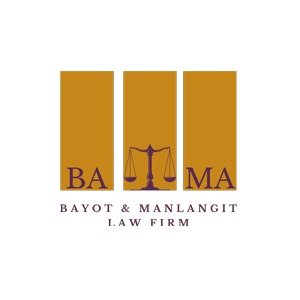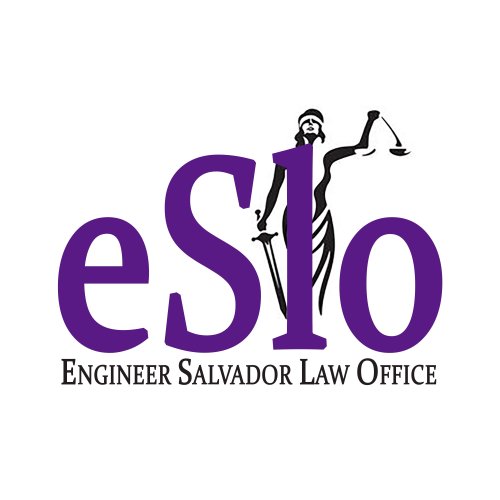Best Foreclosure Lawyers in Cavite City
Share your needs with us, get contacted by law firms.
Free. Takes 2 min.
Free Guide to Hiring a Real Estate Lawyer
List of the best lawyers in Cavite City, Philippines
About Foreclosure Law in Cavite City, Philippines
Foreclosure law in Cavite City, and the Philippines in general, deals with the proceedings through which an outstanding mortgage or lien holder may liquidate or sell a property due to a failure by the borrower in making mortgage payments. Foreclosure proceedings in Cavite City operate under the wider context of Philippine law, including the Chattel Mortgage Law and the Real Estate Mortgage Law. A key tenet is that the homeowner has the right of redemption, i.e., the right to repurchase the property, within a set time frame after the foreclosure sale.
Why You May Need a Lawyer
If you are a homeowner facing foreclosure, it may be wise to consult with a foreclosure attorney. Legal professionals can guide you through the potential alternatives to foreclosure, help in negotiations with the lender, and ensure your rights are protected throughout the process. Additionally, if you are a buyer interested in purchasing a foreclosed property, having a lawyer guide you through the process can help prevent potential legal issues in the future.
Local Laws Overview
The foreclosure process in Cavite City is guided by national laws, primarily the Real Estate Mortgage law (Act No. 3135). This law states that the foreclosure sale must be conducted in public, and all reasonable efforts should be taken to get the best price for the property. Additionally, the law also provides the mortgagor a right of redemption. This right allows the homeowner to reclaim their property by paying what they owe, plus all costs, within one year from the registration of the foreclosure sale.
Frequently Asked Questions
1. Can I stop the foreclosure process once it has started?
Yes, foreclosure proceedings can be halted if you can pay your outstanding debts and associated legal fees. This process is often called 'reinstatement'.
2. Can I reclaim my property after the foreclosure sale?
Yes, the Right of Redemption law in the Philippines allows you to reclaim your property within one year from the registration of the foreclosure sale.
3. What happens if the foreclosure auction doesn't cover my outstanding mortgage?
If the proceeds from the foreclosure sale aren't enough to cover your outstanding debt, the mortgage lender can obtain a deficiency judgement from the court to recover the remaining balance.
4. Can I buy a foreclosed property directly from the bank?
Yes, buying a foreclosed property directly from a bank is possible. However, it's recommended that you involve a lawyer in this process to safeguard your interests.
5. Can I be evicted from my home immediately after foreclosure?
No, immediate eviction after foreclosure is not permissible under Filipino law. A separate eviction process must be initiated by the new owner before you can be legally evicted.
Additional Resources
For further assistance, you may reach out to local governmental bodies such as the Cavite City Local Government Unit or the Department of Justice of the Philippines. Non-profit organizations like the Integrated Bar of the Philippines also provide free legal aid. The Philippine Courts website is also a rich resource of information on legal processes, including foreclosure.
Next Steps
If you're in need of legal assistance regarding a foreclosure, consider consulting with a lawyer who specializes in foreclosure in Cavite City. The lawyer can guide you through the specifics of your case and explain any potential legal remedies available to you. Remember, it's important to act quickly to help protect your property and rights.
Lawzana helps you find the best lawyers and law firms in Cavite City through a curated and pre-screened list of qualified legal professionals. Our platform offers rankings and detailed profiles of attorneys and law firms, allowing you to compare based on practice areas, including Foreclosure, experience, and client feedback.
Each profile includes a description of the firm's areas of practice, client reviews, team members and partners, year of establishment, spoken languages, office locations, contact information, social media presence, and any published articles or resources. Most firms on our platform speak English and are experienced in both local and international legal matters.
Get a quote from top-rated law firms in Cavite City, Philippines — quickly, securely, and without unnecessary hassle.
Disclaimer:
The information provided on this page is for general informational purposes only and does not constitute legal advice. While we strive to ensure the accuracy and relevance of the content, legal information may change over time, and interpretations of the law can vary. You should always consult with a qualified legal professional for advice specific to your situation.
We disclaim all liability for actions taken or not taken based on the content of this page. If you believe any information is incorrect or outdated, please contact us, and we will review and update it where appropriate.









